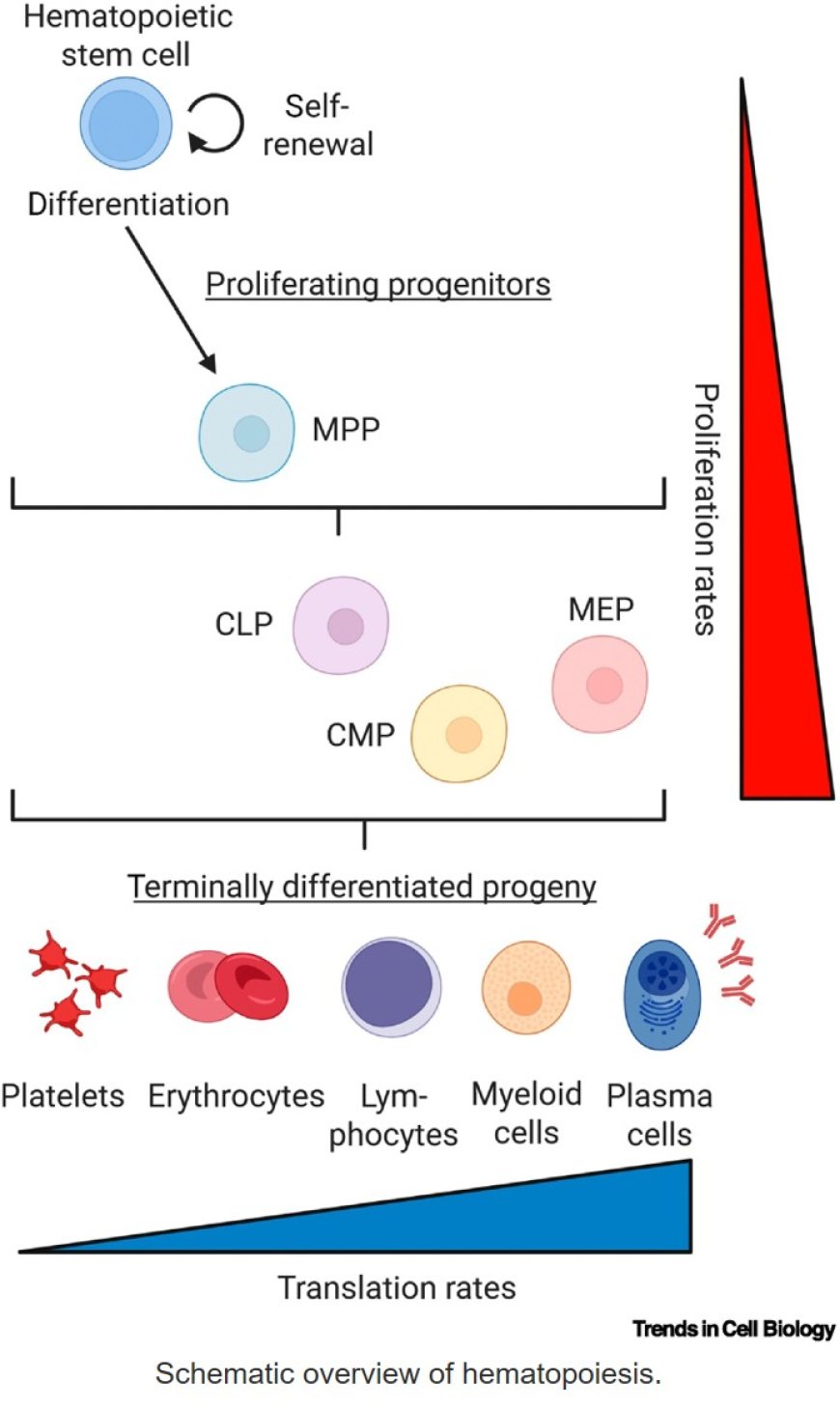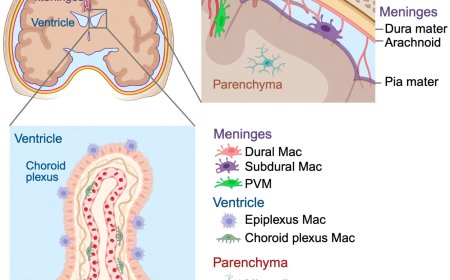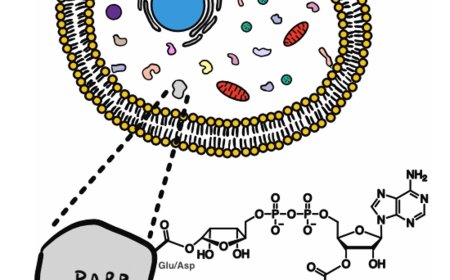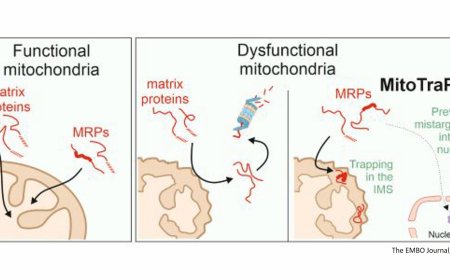How protein stress influences longevity of blood stem cells

The hematopoietic system represents an excellent model to study how proteostasis (protein homeostasis) influences different cell types within the same tissue. This review focuses on mechanisms of proteostasis that preserve the lifespan of rare hematopoietic stem cells (HSCs).
Although most proteostasis network components are expressed in all cells, their activation and utilization are cell type-specific. HSCs maintain low translation rates and a preference for autophagy over proteasomal degradation to minimize protein stress.
To protect the integrity of the stem cell pool, HSCs are thought to respond to damage by clearing defective organelles and proteins or by eliminating compromised cells through differentiation or apoptosis.
A stressed proteome accelerates HSC aging, and the immune system derived from aged HSCs is suspected to contribute to the decline of other tissues. This highlights the importance of maintaining healthy HSCs to preserve organismal wellbeing.
Several experimental treatments in mouse models have been shown to boost HSC activity in older organisms by enhancing proteostasis.
This promising research opens up new possibilities for interventions that could improve aging through regenerative medicine.
https://www.cell.com/trends/cell-biology/fulltext/S0962-8924(25)00151-5
https://sciencemission.com/longevity-from-blood-stem-cells-under-protein-stress













